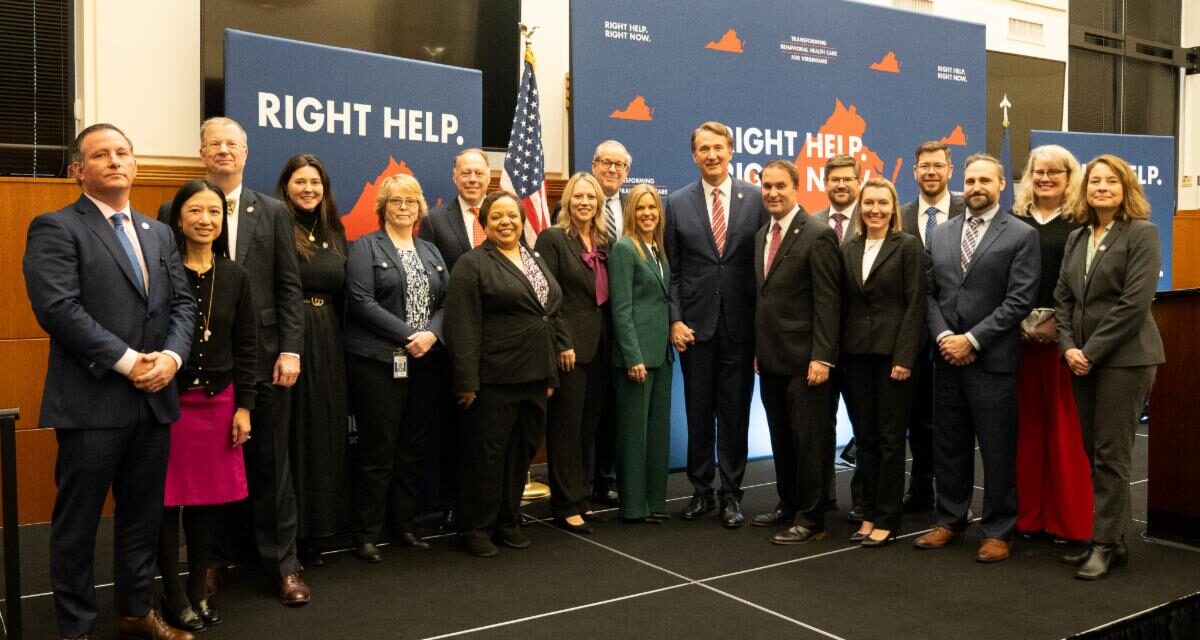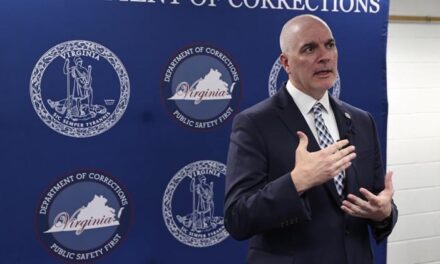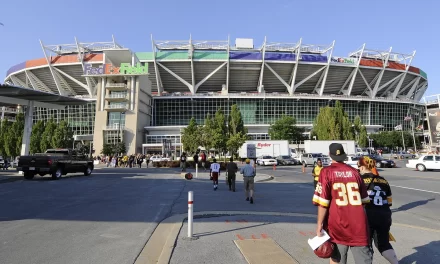RICHMOND, VA – Governor Glenn Youngkin celebrated the two-year anniversary of Virginia’s Right Help, Right Now behavioral health transformation plan in Richmond. This three-year effort has strengthened behavioral health services across the Commonwealth, resulting in a wide range of initiatives, legislation, and unprecedented financial investments totaling $1.4 billion since its launch in December of 2022.
Today, Governor Youngkin unveiled $35 million in funding included in his upcoming budget to employ Special Conservators of the Peace (SCOPs) across the Commonwealth to aid with alternative custody while individuals are awaiting placement for care. This program both de-escalates the crisis and allows law enforcement to return to their core safety duties for their community.
“Two years ago, we committed to transforming Virginia’s behavioral health system with a bold vision and action plan,” said Governor Glenn Youngkin. “Today, we see the progress: more capacity, better services, and lives changed. With the addition of SCOPs in emergency departments, we are not only reducing the strain on law enforcement but also creating safer, more appropriate environments for individuals in crisis to receive care.”
“Through It Only Takes One, we are reminded that a single choice, conversation, or action can save a life. Together, with Right Help, Right Now, we are building a stronger foundation for behavioral health and substance use awareness across Virginia,” said First Lady Suzanne S. Youngkin.
“This progress highlights a key priority and promise of Governor Youngkin’s to transform Virginia’s behavioral health system,” said Secretary of Health and Human Resources Janet Kelly. “When a person is having a mental health crisis, they need mental health treatment. The funding proposals announced today will continue to better align resources to ensure that every Virginian has access to the right help at the right time.”
Achievements Across Six Pillars
The Right Help, Right Now plan is guided by six pillars, each addressing critical components of behavioral health care. The accomplishments over the past two years include:
Same-day care:
- The Virginia 988 Call Center expanded capacity to meet rising call volumes, connecting residents to immediate, life-saving support.
- The Commonwealth exceeded its year two goal of 70 publicly funded mobile crisis teams, with over 100 teams now operational and providing statewide 24/7/365 service with an average response time of under 50 minutes.
Relieving the burden on law enforcement:
- DBHDS has provided and will continue to provide trainings for CSB staff on informed consent, violence risk assessment, and advanced directives to help better coordinate care for individuals in crisis.
- The SCOPs program pilot in southwest Virginia has demonstrated success, reducing law enforcement involvement and creating calmer, more supportive environments for patients in crisis.
Expanding system capacity:
- New crisis receiving centers (CRCs), crisis stabilization units (CSUs), and crisis therapeutic homes (CTHs) have been established. To date, three rounds of grant funding totaling $125 million have expanded capacity from 216 units to 663 operational or in-development facilities statewide.
- The Adult Psychiatric Access Line has launched, supporting primary care providers with behavioral health consultation services.
Substance use disorder and overdose prevention:
- Virginia has reduced opioid-related fatalities through initiatives like expanded naloxone distribution, with 142,000 kits distributed through the REVIVE! opioid overdose and naloxone education program in FY24.
- The Governor’s November 26 press conference highlighted coordinated efforts to combat fentanyl, including major drug seizures and enhanced public awareness campaigns.
- Based on the pilot’s success, the First Lady of Virginia’s statewide It Only Takes One initiative is targeting at-risk communities to combat the fentanyl crisis throughout the Commonwealth.
Workforce development:
- Launching this year, Virginia will implement three new career pathways that include Behavioral Health Technician Assistant, Behavioral Health Technician, and Master’s Psychology Practitioner.
- Today, Virginia.gov launched, providing a comprehensive recruitment platform for behavioral health professionals. It offers career pathways, educational resources, and job listings aimed at strengthening Virginia’s behavioral health workforce.
Prevention and innovation:
- Expanded mandated benefits to include crisis services—mobile, residential stabilization, and receiving centers—ensuring comprehensive insurance coverage, balance billing protection, and improved access.
- The Governor also established the Reclaiming Childhood Task Force through Executive Order 43 to empower parents to increase positive youth mental health outcomes.
Over the past two years, the Right Help, Right Now initiative has achieved transformative progress, marked by over 50 pieces of legislation and $1.4 billion in new funding, addressing all facets of behavioral health care in Virginia.
“As we celebrate two years of progress, we are able to better focus our efforts for the final year and ensure that these investments produce the most effective outcomes for Virginians,” said Executive Director of Right Help, Right Now Hallie Pence. “This is more than funding or legislation—it is the foundation for a healthier, stronger future where every Virginian has access to the care they deserve.”
Together, these legislative efforts and financial investments reflect a holistic approach to behavioral health, addressing prevention, intervention, crisis care, and recovery while setting a national standard for reform.
“Our work is far from over,” said Commissioner of the Virginia Department of Behavioral Health and Developmental Services Nelson Smith. “We are building a system that will serve as a model for the nation—one that is responsive, accessible, and effective.”
Today’s event underscored Virginia’s commitment to comprehensive, sustainable behavioral health care. Approaching the final year of the initiative, stakeholders and leaders remain focused on delivering the Right Help, Right Now.
Click here for more information on Governor Glenn Youngkin’s key accomplishments and continued investments in Virginia’s Right Help, Right Now plan, and here for more information on First Lady Suzanne S. Youngkin’s statewide initiative combatting fentanyl, It Only Takes One.









